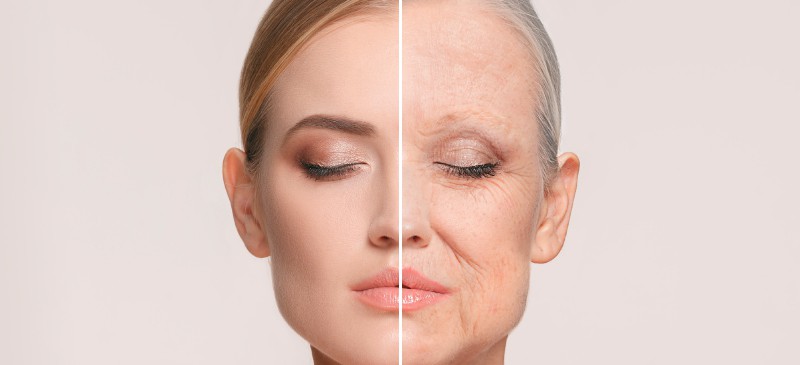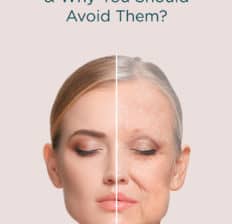This Dr. Axe content is medically reviewed or fact checked to ensure factually accurate information.
With strict editorial sourcing guidelines, we only link to academic research institutions, reputable media sites and, when research is available, medically peer-reviewed studies. Note that the numbers in parentheses (1, 2, etc.) are clickable links to these studies.
The information in our articles is NOT intended to replace a one-on-one relationship with a qualified health care professional and is not intended as medical advice.
This article is based on scientific evidence, written by experts and fact checked by our trained editorial staff. Note that the numbers in parentheses (1, 2, etc.) are clickable links to medically peer-reviewed studies.
Our team includes licensed nutritionists and dietitians, certified health education specialists, as well as certified strength and conditioning specialists, personal trainers and corrective exercise specialists. Our team aims to be not only thorough with its research, but also objective and unbiased.
The information in our articles is NOT intended to replace a one-on-one relationship with a qualified health care professional and is not intended as medical advice.
What Are Parabens? The Truth About This Common Cosmetic Ingredient
November 9, 2023

Although the topic is still being investigated, the main concerns regarding the use of synthetic chemicals called parabens is that they may disrupt hormone levels in the body. This makes them potential “endocrine disruptors,” meaning they can mimic the effects of reproductive hormones (like estrogen) and therefore change how the body produces its own hormones.
What products contain parabens? As explained more below, they’re found in a variety of personal care products that people use every day — things like lotions, sunscreen, cleansers, toothpastes and makeup.
The best way to avoid them is to use less cosmetics and beauty products in general and also to change to paraben-free brands whenever possible.
What Are Parebens?
According to the U.S. Food and Drug Administration, a paraben is a chemical that is commonly used as a preservative in cosmetics, beauty products, and less often in foods and drugs.
Parabens have been used commercially in the U.S. since the 1950s, and although they are controversial, it remains legal to add them to a number of products that directly come into contact with our skin.
The main reason these chemicals are added to cosmetics and other products is because they prevent the growth of potentially harmful bacteria, fungus and mold. Their use therefore limits the risk of someone experiencing side effects from using beauty products or consuming foods that could be contaminated.
Preservatives like parabens also increase the shelf life of products, making them more profitable to produce.
Parabens are technically a family of related, synthetic (manmade) chemicals, and oftentimes several are used in combination to have the most effects. The types that you’ll find in beauty products and foods most often include:
- methylparaben
- propylparaben
- butylparaben
- ethylparaben
- isobutylparaben
- isopropylparaben
What Products Contain Them?
Parabens can be found in some of the following products:
- Cosmetics/makeup, including foundations, concealers, blush, mascara, etc.
- Moisturizers
- Hair care products, like shampoos and conditioners
- Shaving products, including gels and shaving creams
- Face and skin cleaners
- Sunscreens
- Some toothpastes
- Some brands of deodorants
They are also added to some baked goods, beverages, syrups, jellies, jams and preserves.
Why Are Parabens Bad? (Risks and Side Effects)
Why are parabens so bad for you?
Based on the latest research, some experts speculate that these chemicals might contribute to fertility and reproductive problems. There’s also a chance they may be harmful for pregnant women because they might possibly make their way into the bloodstream and affect the fetus and birth outcomes.
As an article published in Scientific American explains, “Parabens mimic estrogen by binding to estrogen receptors on cells. Research has shown that the perceived influx of estrogen beyond normal levels can in some cases trigger reactions such as increasing breast cell division and the growth of tumors.”
The Environmental Working Group (EWG), which investigates and reports about chemicals found in various household and skin products, reports that potential problems that have been linked to paraben use include:
- Fertility problems
- Issues with normal reproductive development and birth outcomes, including increased chance of preterm birth and decreased birth weight
- Changes in menstrual cycles
- Decreases in sperm production and lowered testosterone levels in animal studies
- Increased risk of developing certain types of cancers, particularly breast cancer in women
- Skin irritation and reactions, including redness and rashes
- Possibly other reproductive, immunological, neurological and skin irritation problems, however more research is still needed
When you use products containing parabens, they can be absorbed into your body through your skin, then metabolized, and then finally excreted in your urine and bile. Several studies have found that parabens are able to be detected in the majority of urine samples taken from adults, including those living across the U.S. and Europe.
For example, the Centers for Disease Control and Prevention (CDC) measured paraben levels in the urine of more than 2,548 participants aged six years and older in 2006. Researchers found methylparaben and propylparaben in the urine of the vast majority of the people tested.
Females, adults younger than age 60 and non-Hispanic Blacks were found to have the highest levels in their urine.
Are parabens regulated by the FDA?
The FDA states that:
Under the Federal Food, Drug, and Cosmetic Act (FD&C Act), cosmetic products and ingredients, other than color additives, do not need FDA approval before they go on the market… to take action against a cosmetic for safety reasons, we must have reliable scientific information showing that the product is harmful…At this time, we do not have information showing that parabens as they are used in cosmetics have an effect on human health.
While parabens are allowed to be used in the U.S., types including isopropyl- and isobutylparaben have been banned in the EU and in 10 Southeast Asian countries.
Are parabens harmful for your skin?
Some studies have found that parabens can cause skin irritation, hives, and swelling and redness, usually around the eyes, cheeks or lips, especially when someone is repeatedly exposed to them. Some also seem to be more sensitive to the effects of parabens and therefore more likely to have skin reactions.
The CDC has pointed out that certain studies have found that sensitive individuals can react to these chemicals by developing skin reactions, including urticaria (red, itchy welts) and angioedema (severe hives and swelling of the skin). While parabens are thought to be generally non-allergenic, there have been some cases when people have had severe allergic reactions to them.
How to Avoid Them
Here’s some good news: A number of major retailers in the U.S. that sell beauty products and cosmetics have committed to banning the sale of products containing parabens within the next several years or have already enacted bans.
Whole Foods, CVS, Target, Rite Aid and Walgreens all plan to stop selling products contain popular parabens like butyl- and propylparaben by the end 2021.
You’re most likely to develop reactions to parabens if you use products that contain these chemicals often, such as by wearing makeup, lotions, deodorants and sunscreen daily. Using toothpastes with parabens is another significant exposure source.
This means that it’s most impactful to ditch conventional brands of these products and to switch to natural, organic and parabens-free brands.
Ideally, look for beauty and skin care products that are free of endocrine disruptors, including phthalates, parabens and other phenols. These tend to be natural and organic brands that use effective alternatives to parabens to prevent microbial growth in their products.
These products may be a bit more expensive and have shorter shelf lives than conventional products (six months to a year), but they can drastically cut down on levels of parabens you’re exposed to.
For recommendations for safer products, check out the Breast Cancer Action’s list of over 100 cosmetics and personal care product that are made by companies committed to avoiding parabens. The Environmental Working Group also posts frequent recommendations about choosing safe products.
Wearing less makeup can also help you avoid parabens. A 2019 study found that adolescent girls who wore makeup every day had significantly higher levels of propylparaben in their urine compared to those who rarely wore makeup.
Research suggests that it’s most important to avoid exposure to longer-chain parabens, especially propylparaben and butylparaben. These two have been linked to stronger estrogenic activity and hormone-related issues.
Conclusion
- What is a paraben, and why is it bad? A paraben is a chemical that is used as a preservative in cosmetic products. These chemicals help prevent the growth of harmful bacteria and mold.
- While parabens are legal to use in the U.S., some have been banned in Europe and Asia. Bans are due to potential concerns over how they may impact hormone health, fertility, growth and development.
- To avoid parbens, read ingredient labels, and choose brands that don’t take the following chemicals: methylparaben, propylparaben, butylparaben or ethylparaben.




